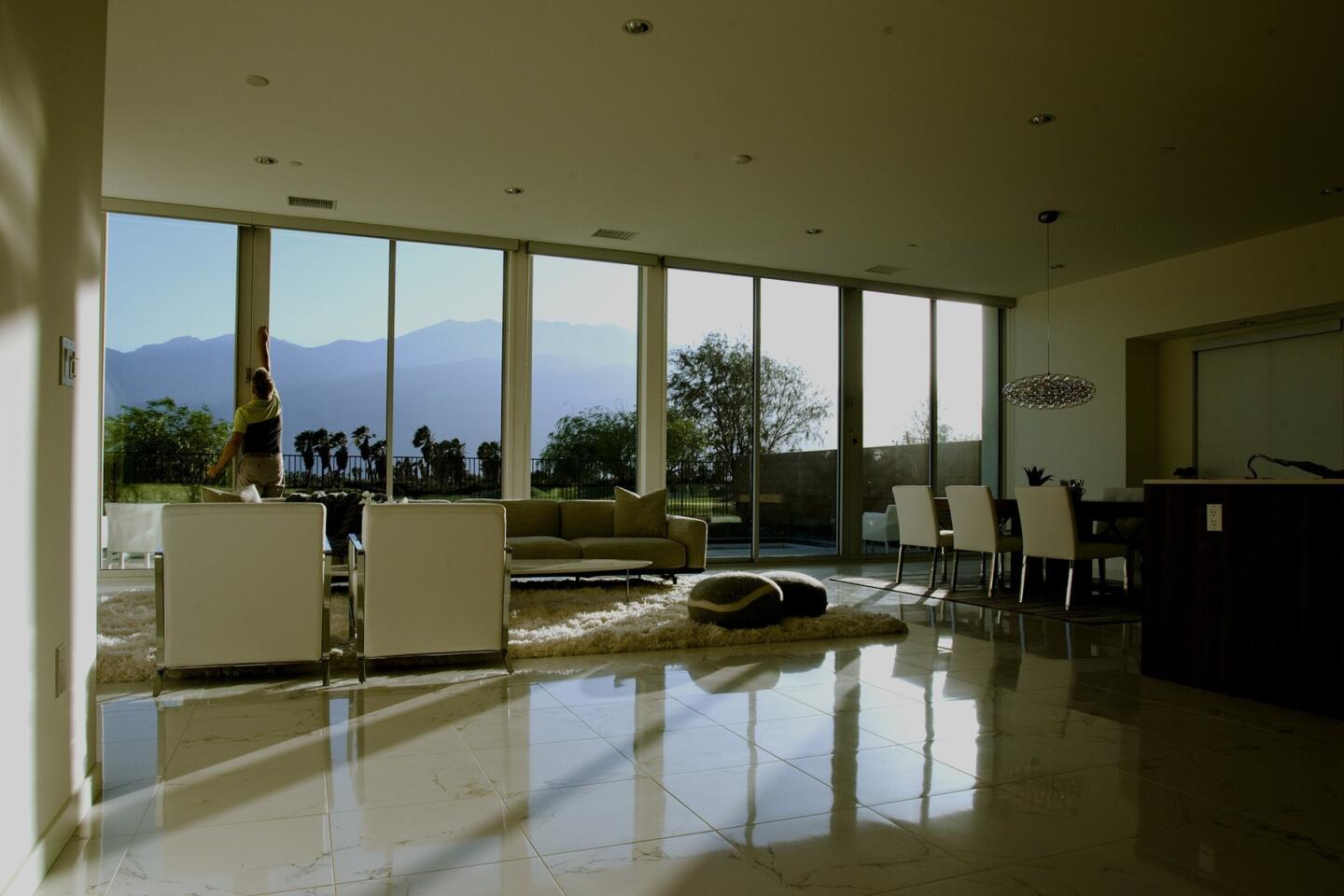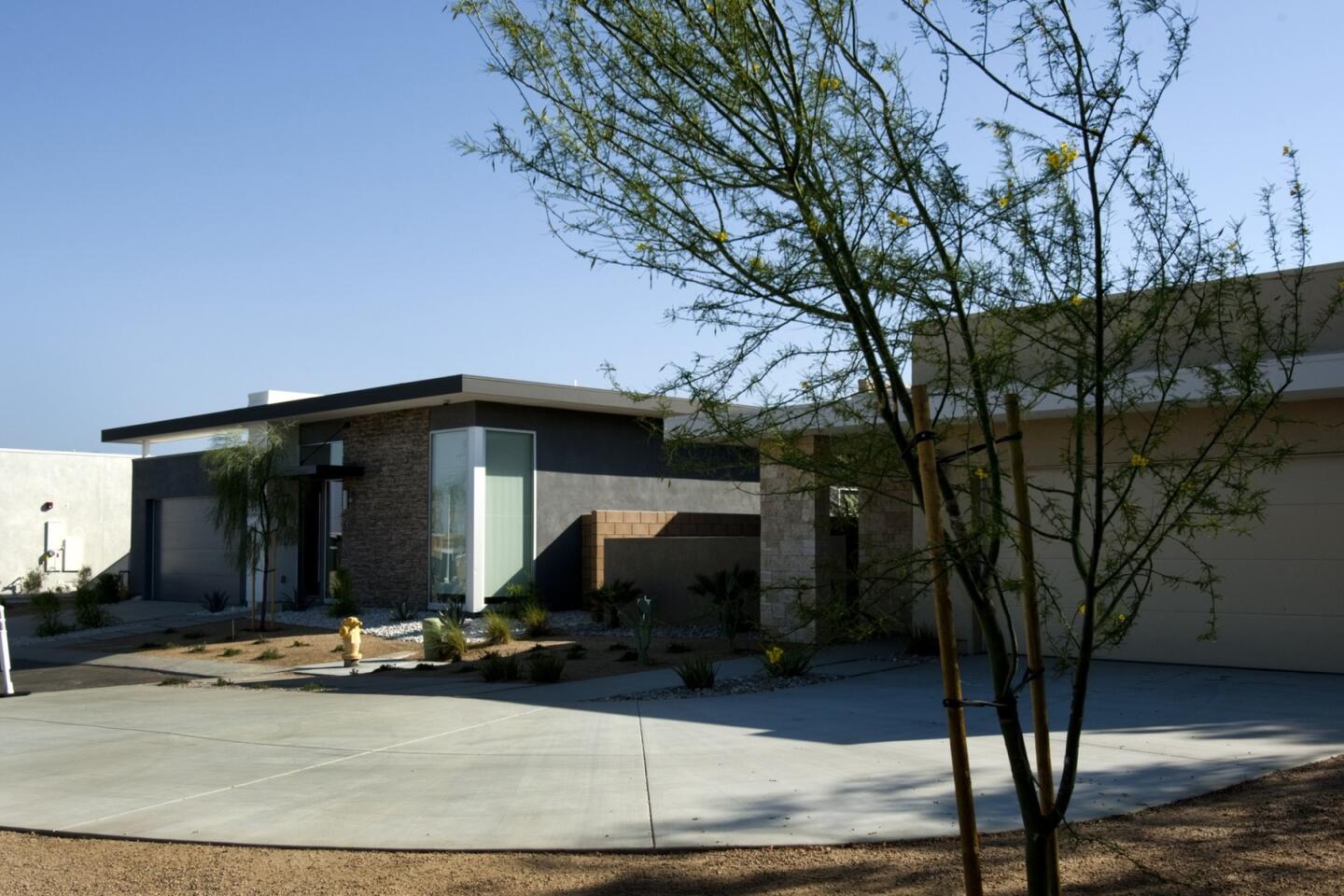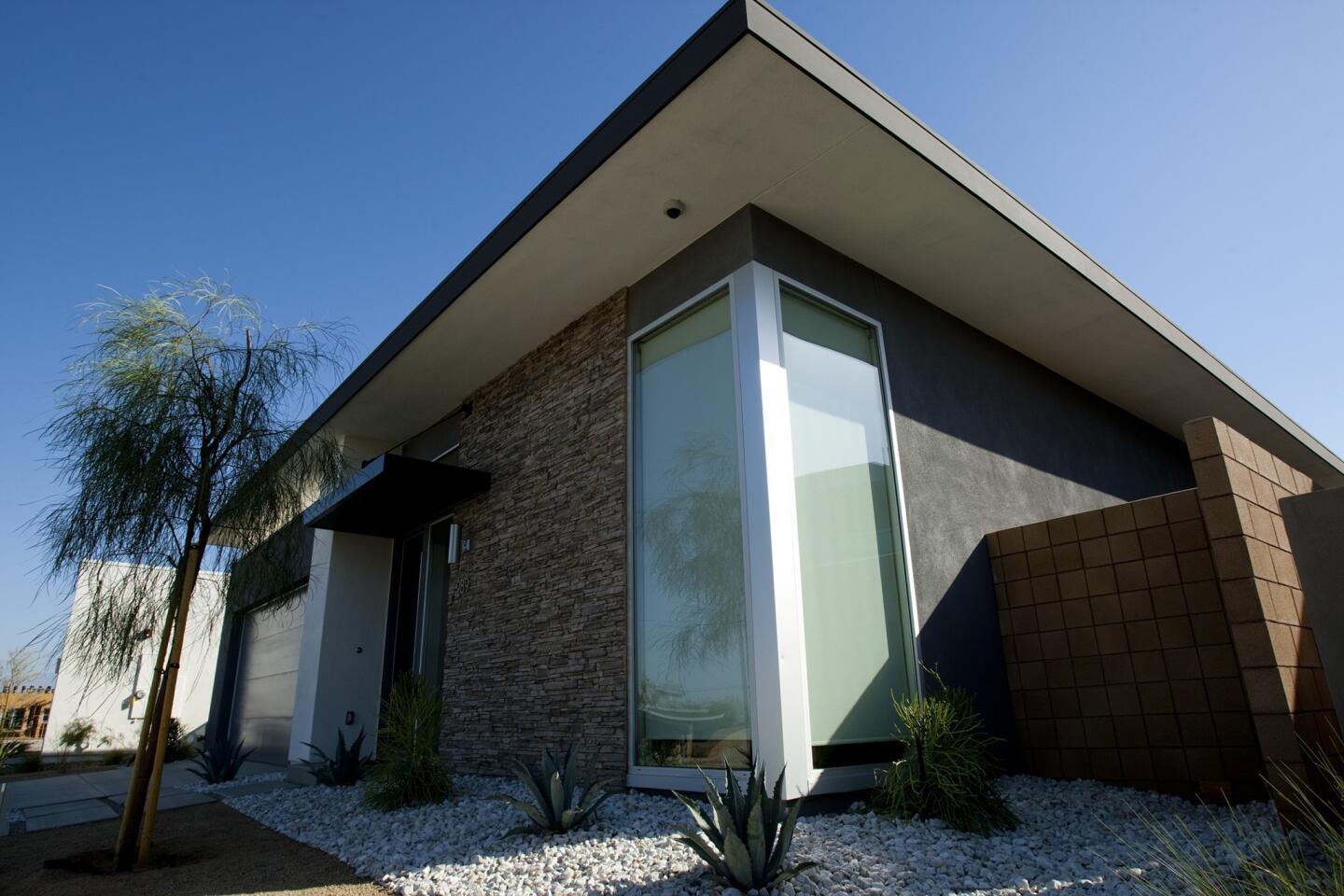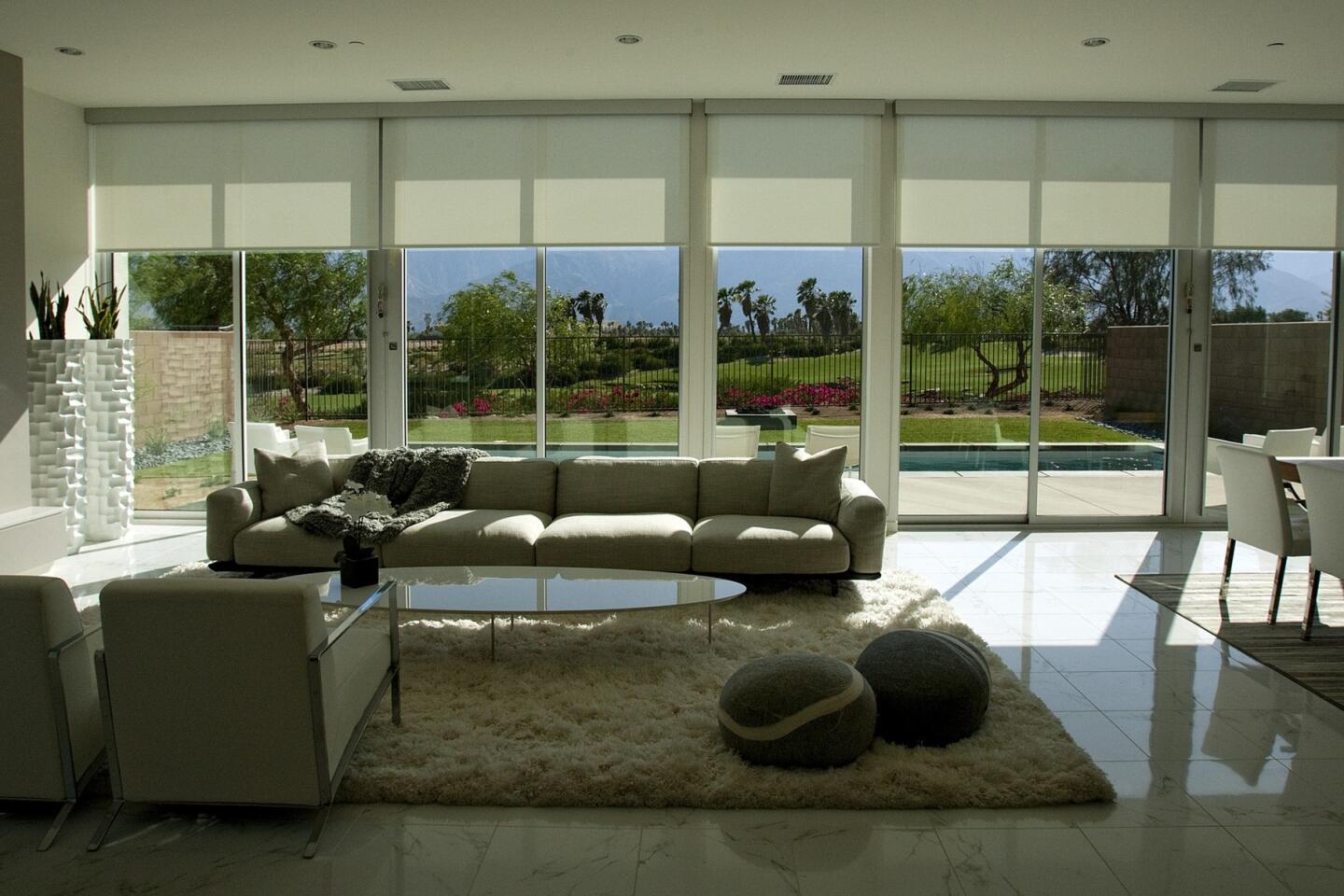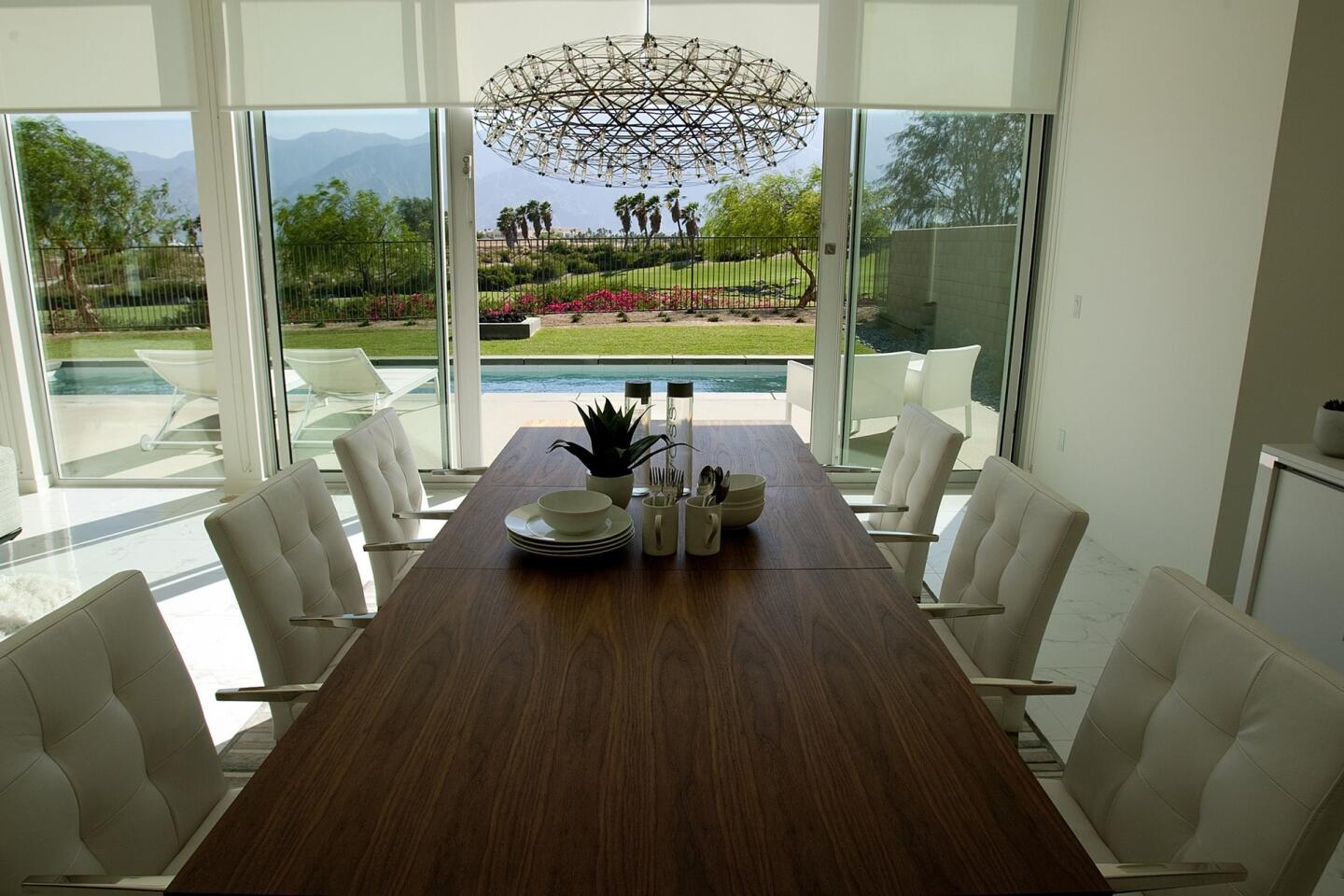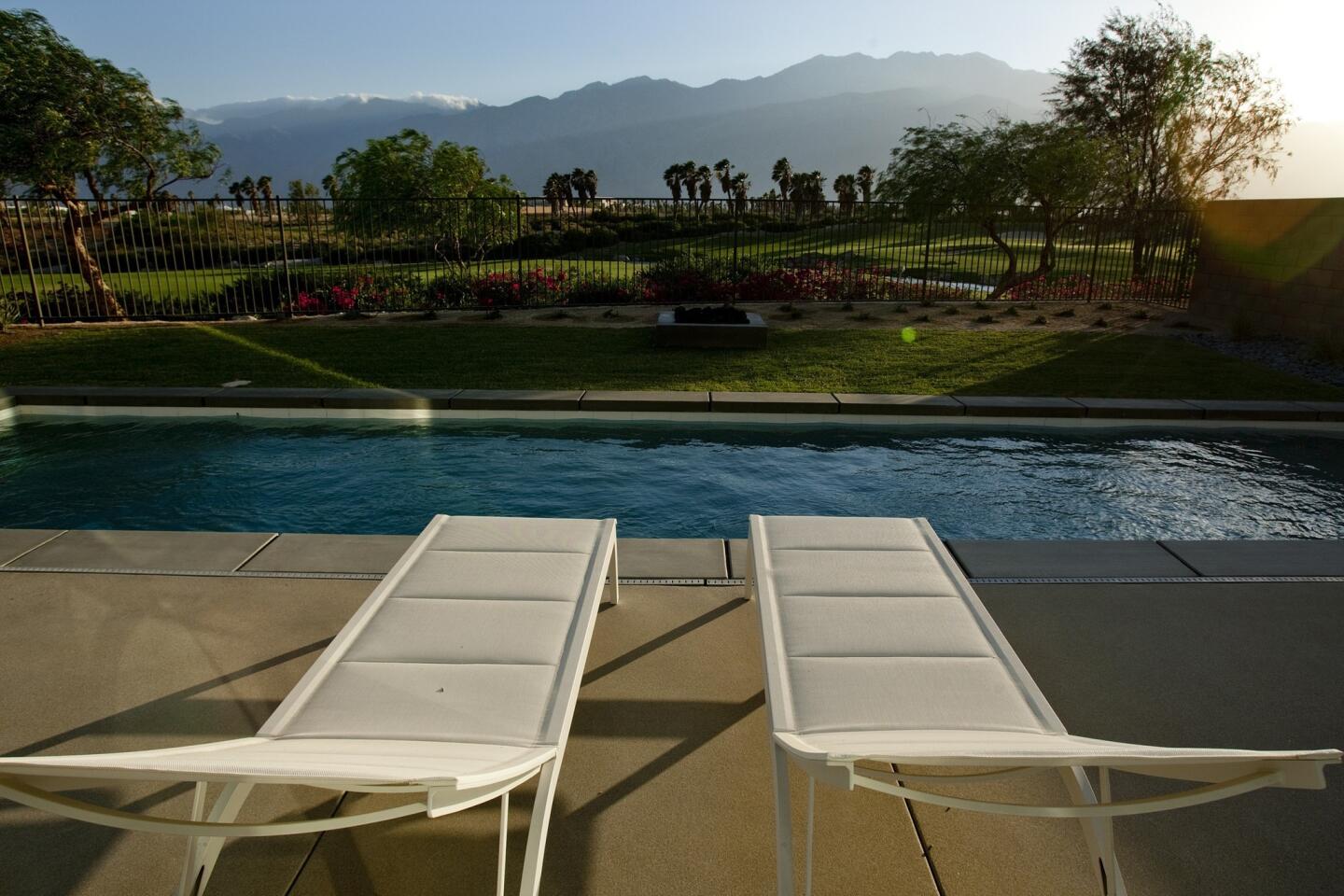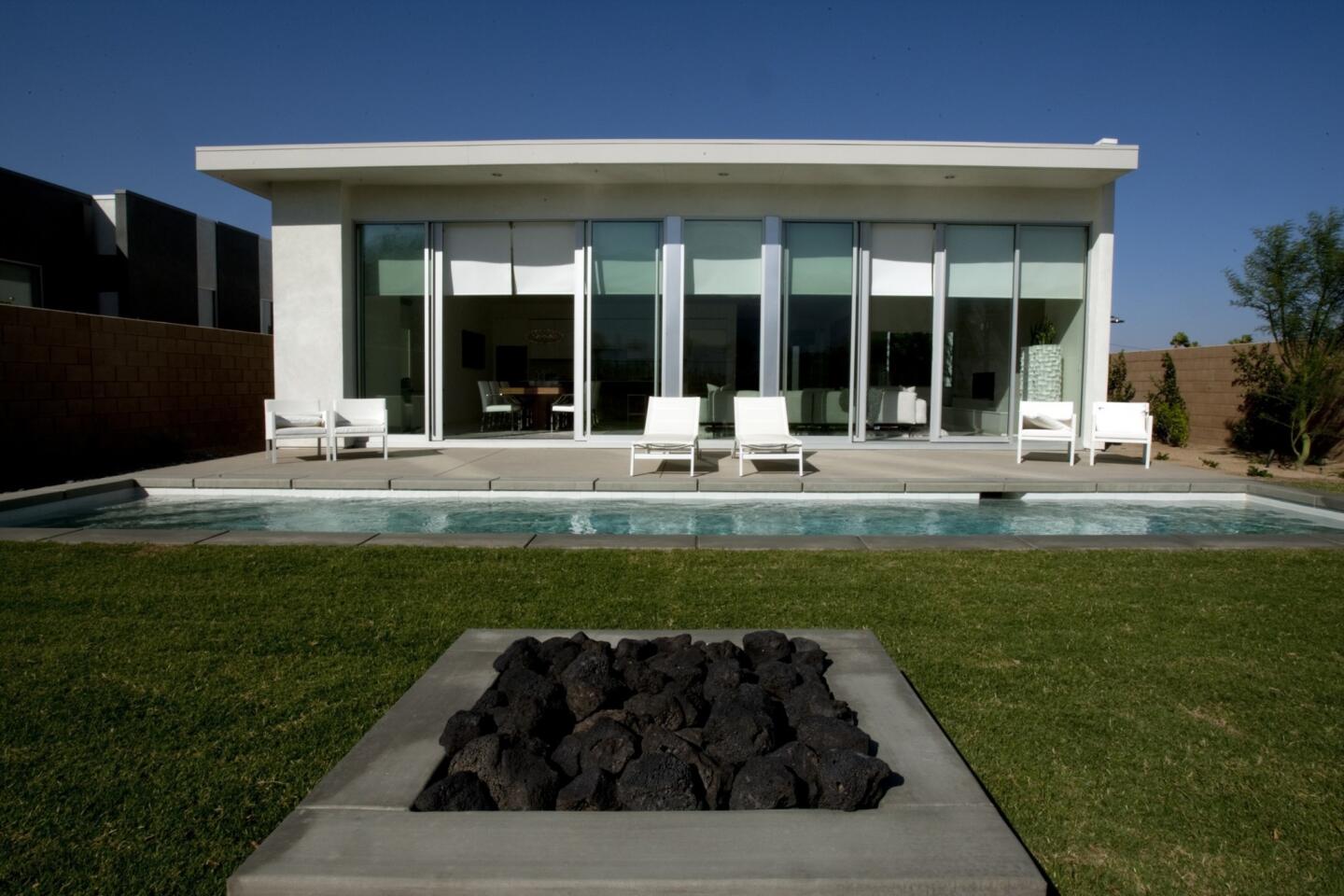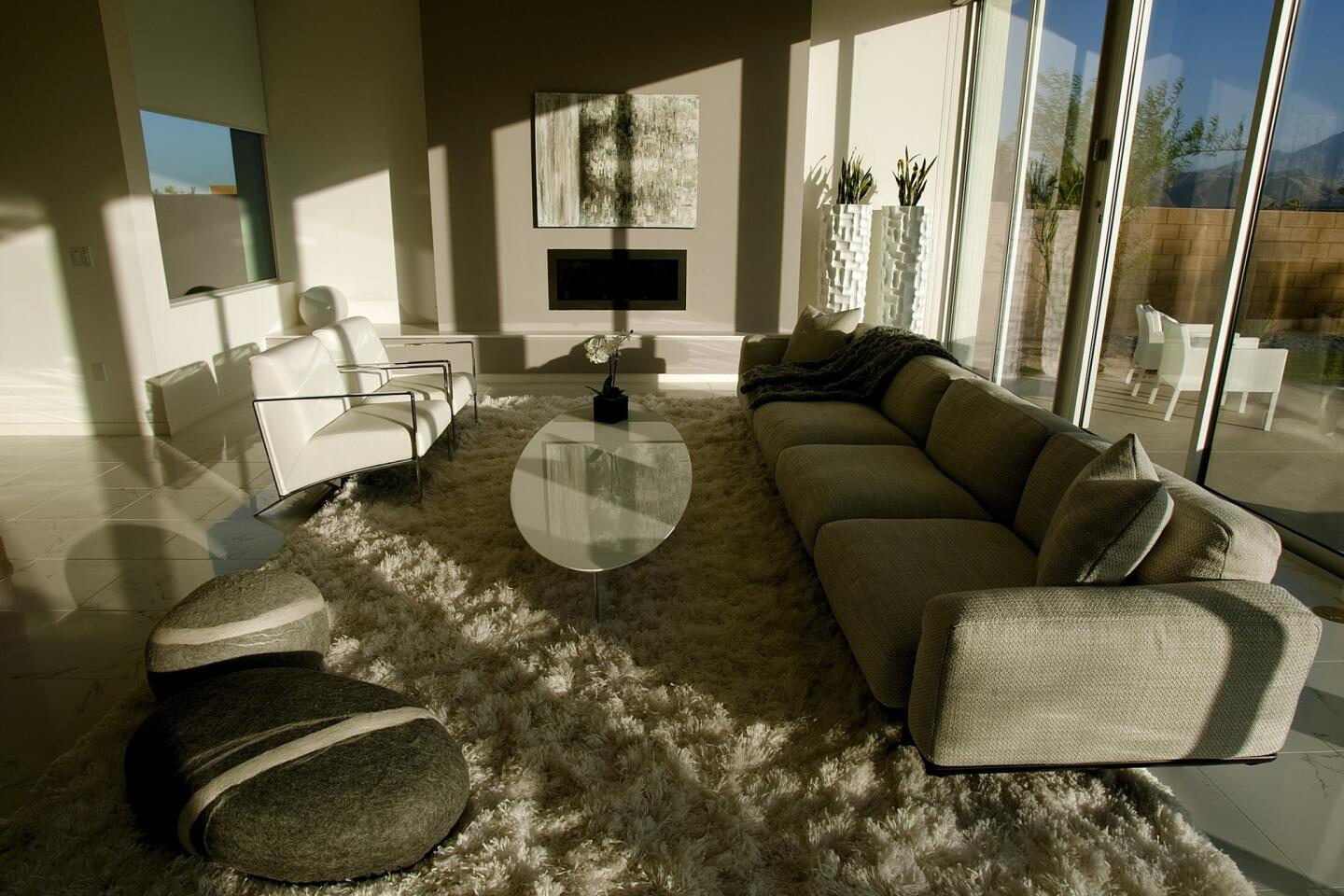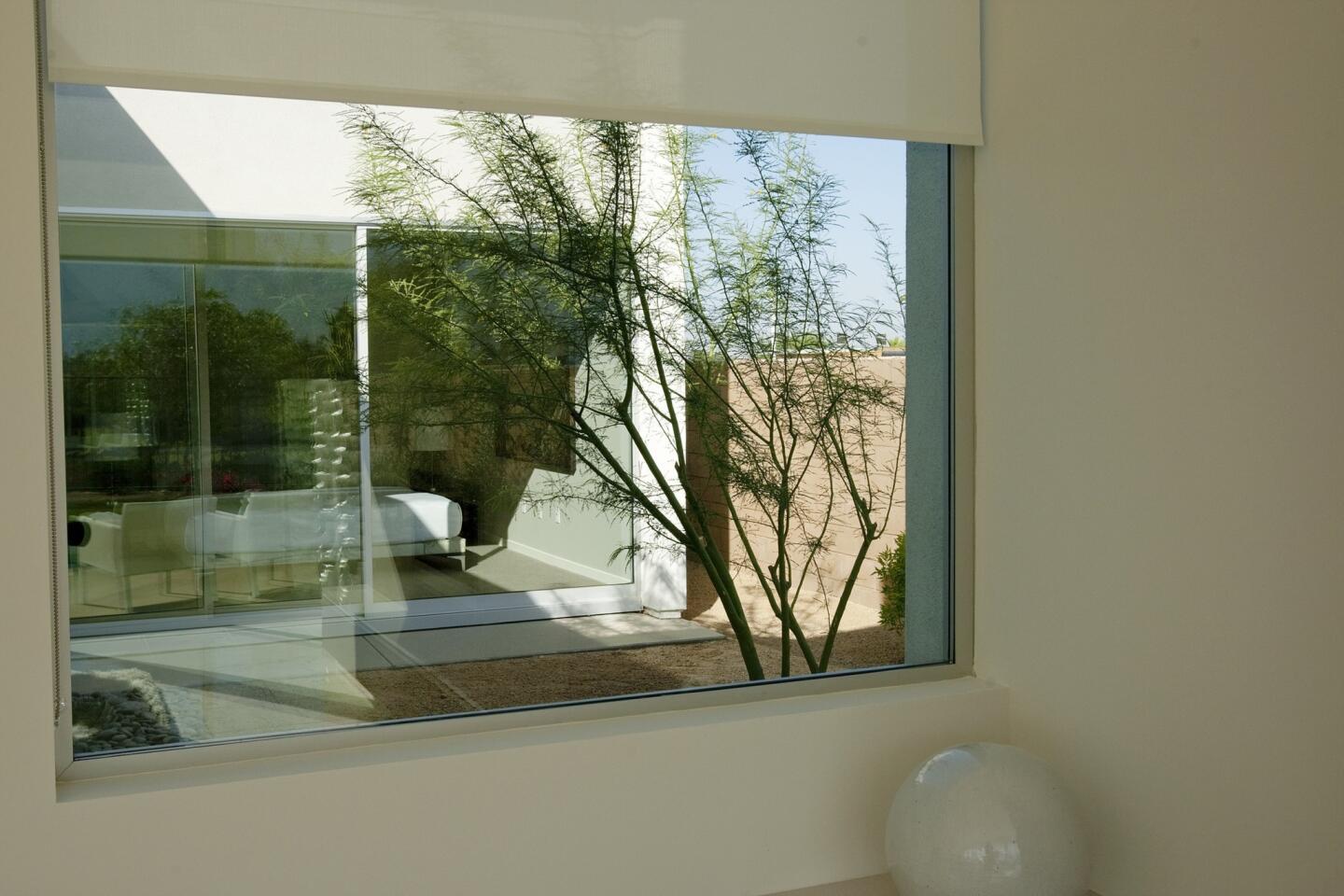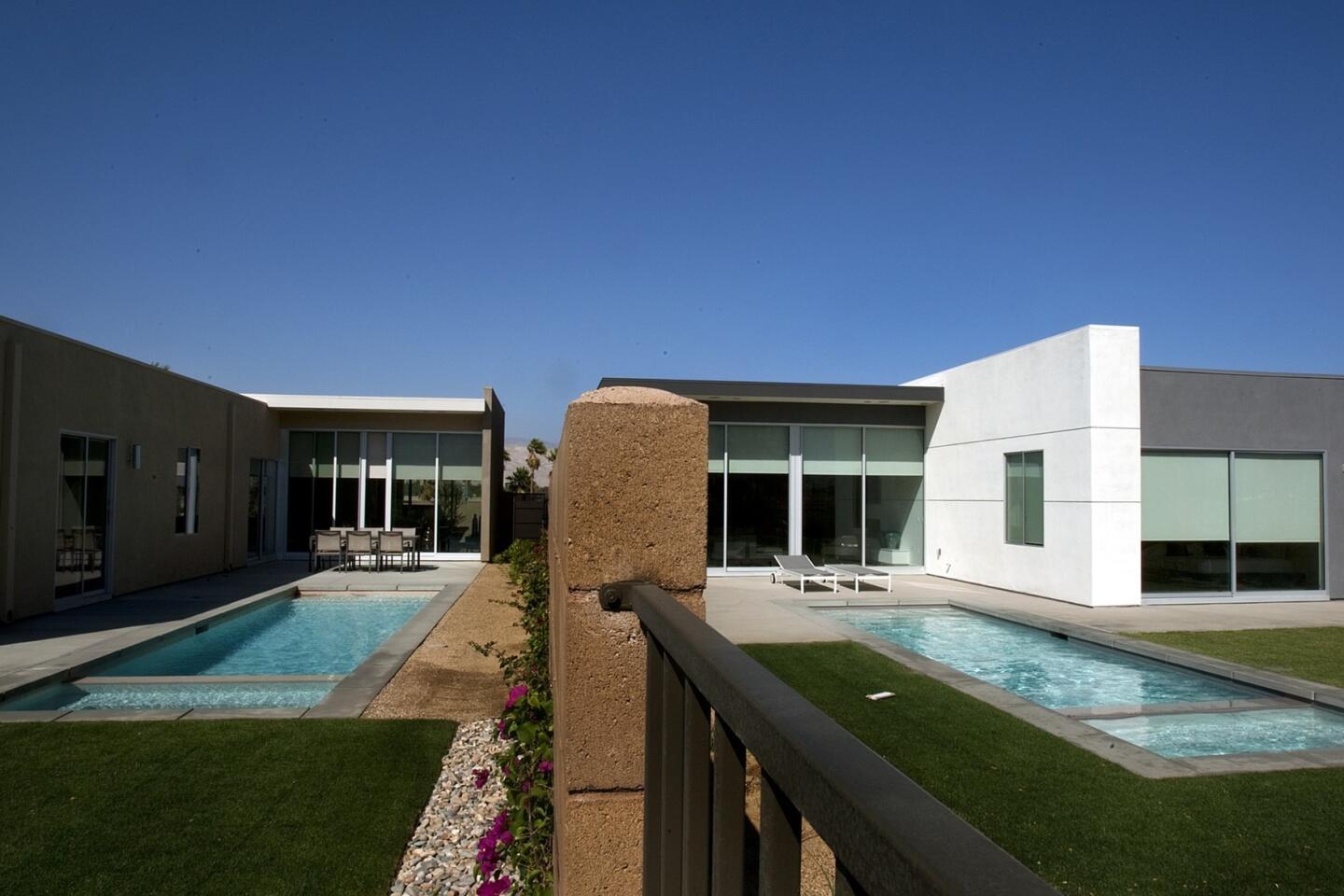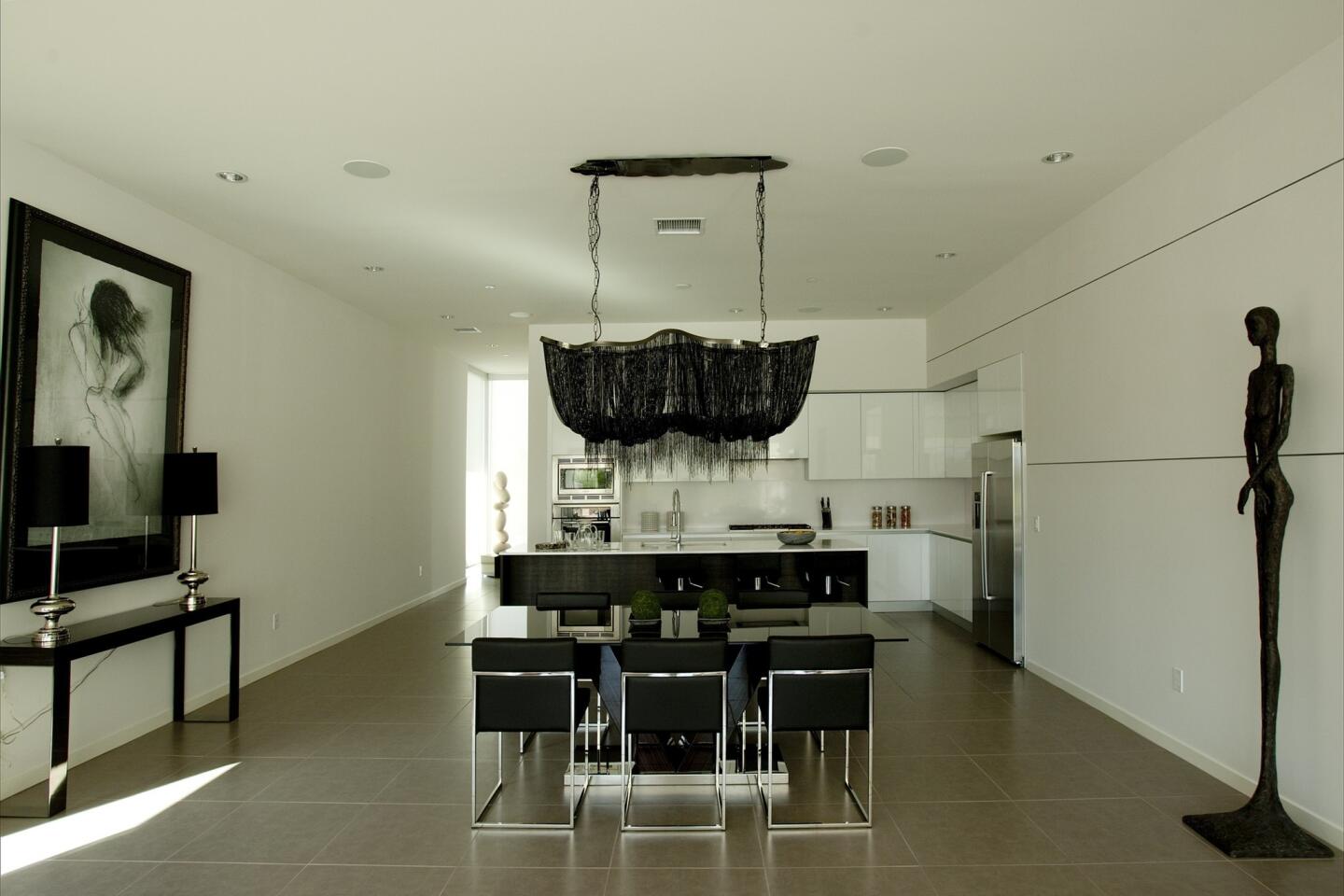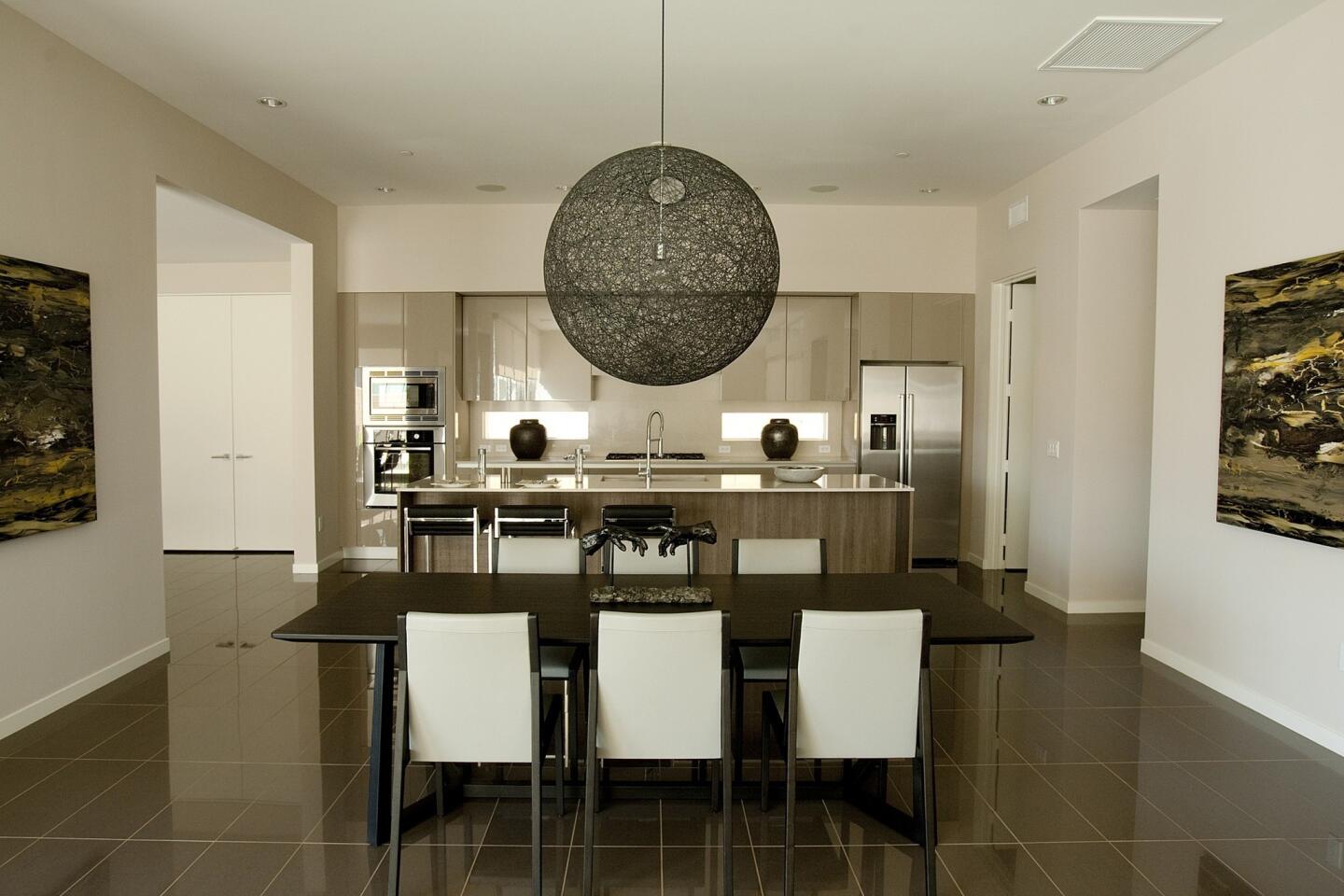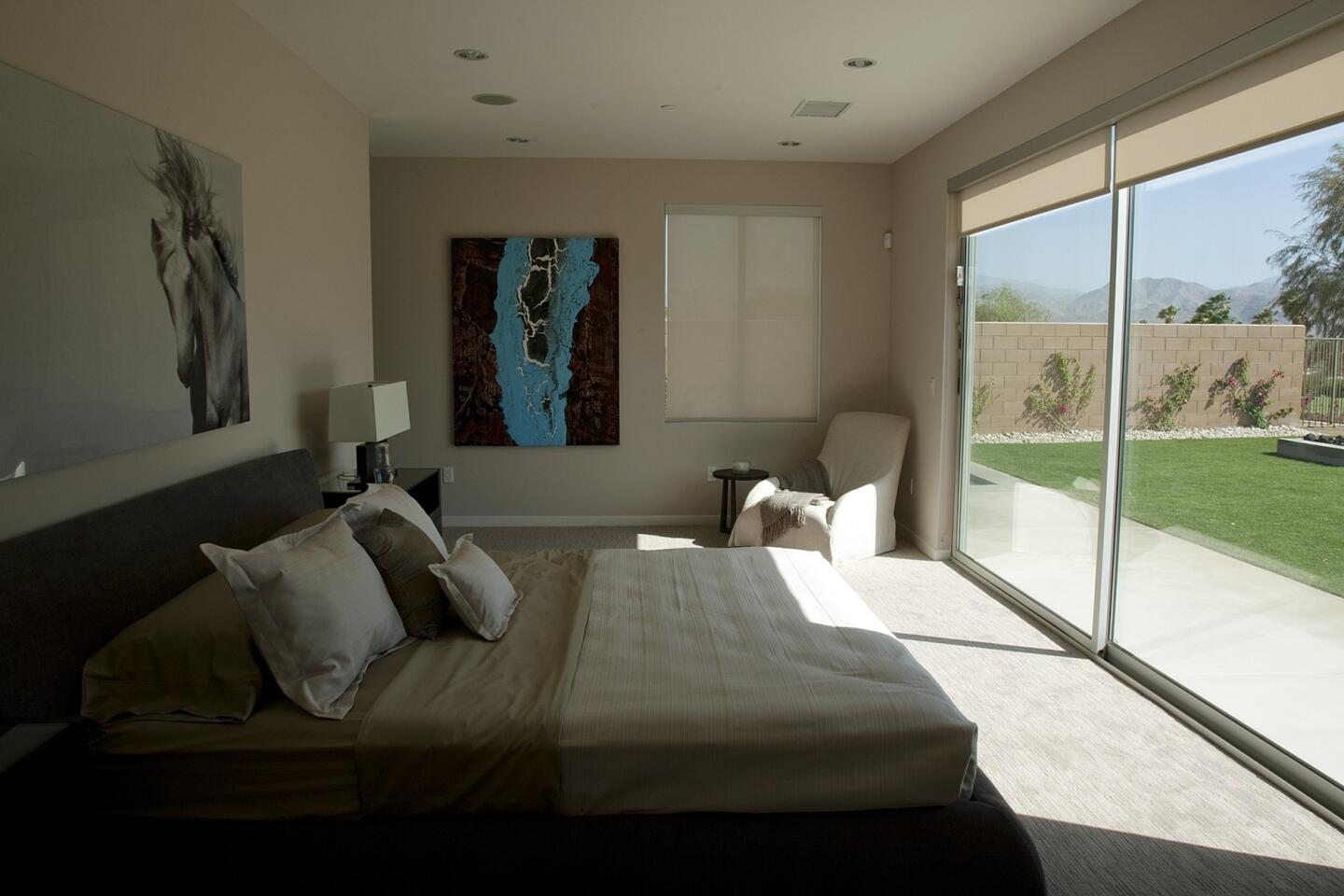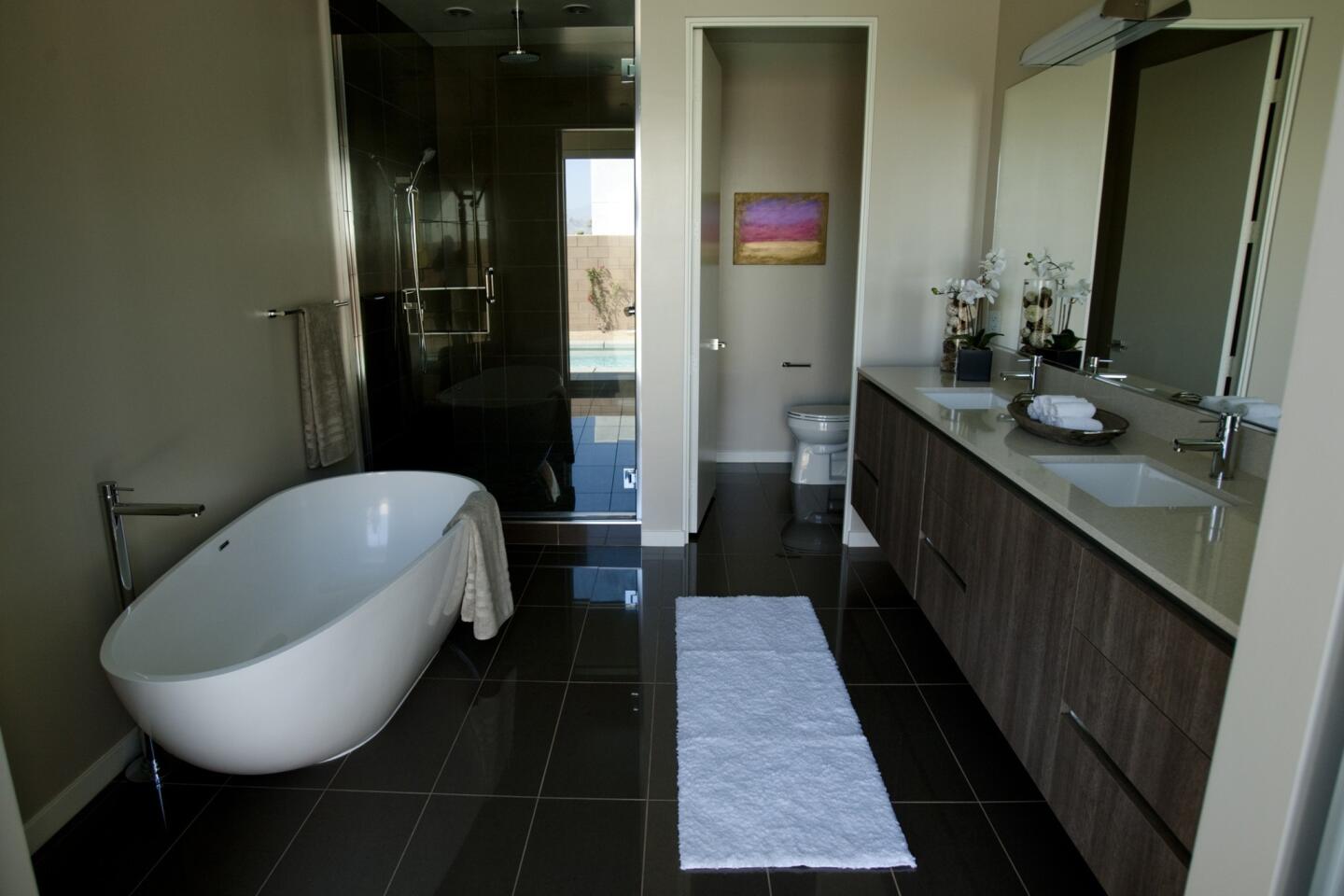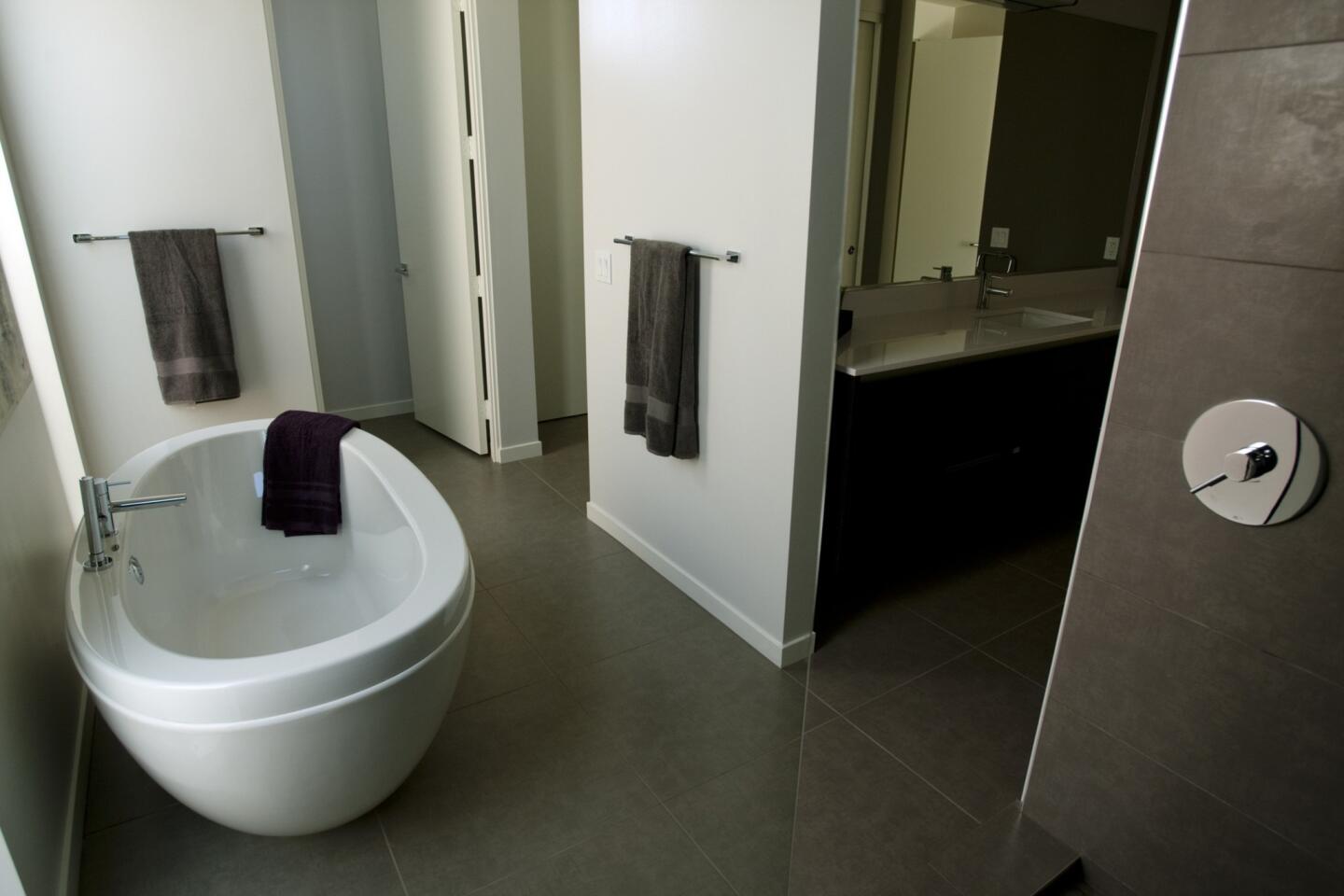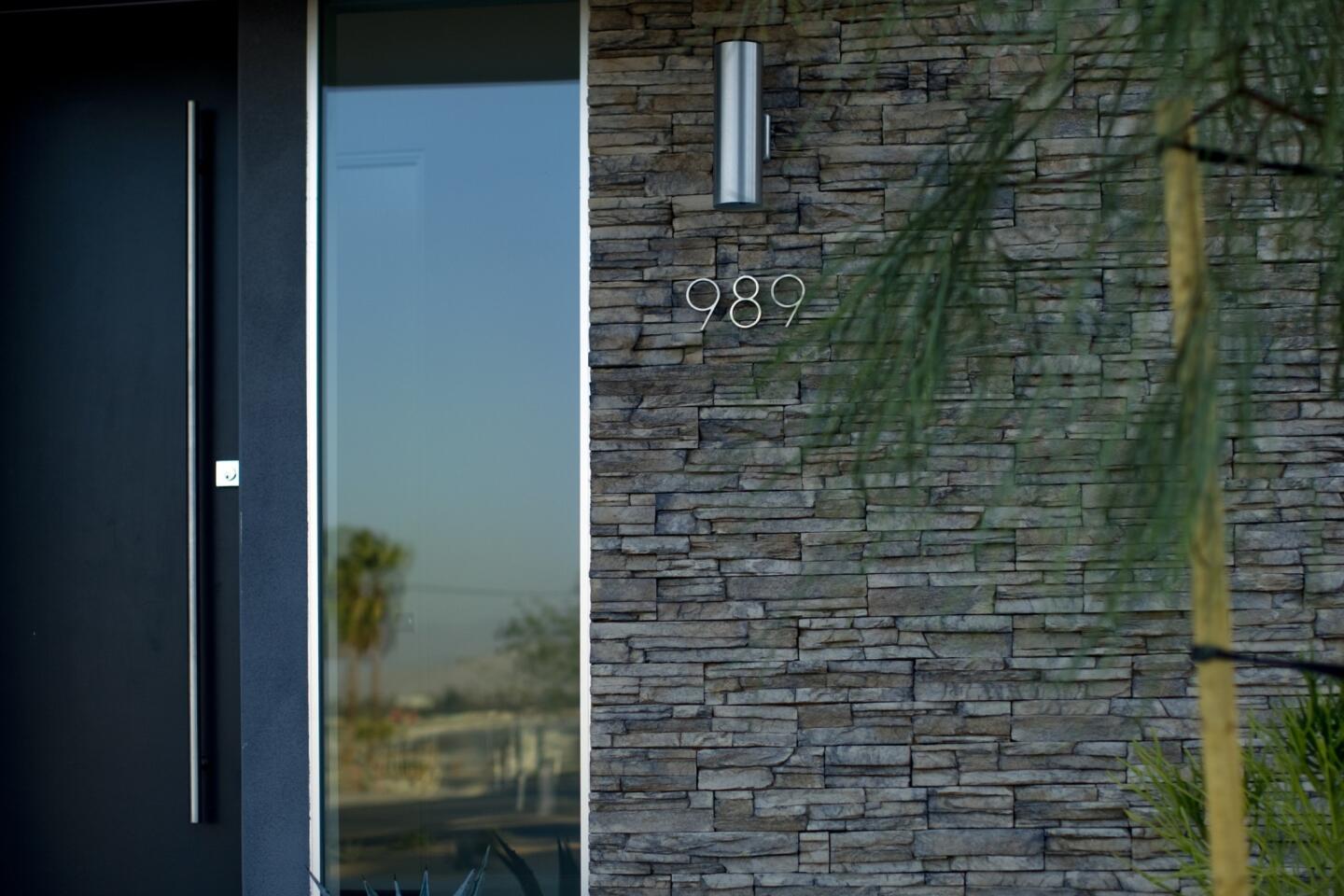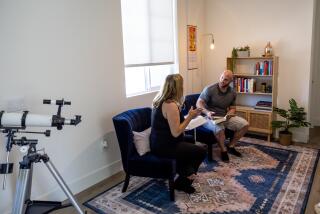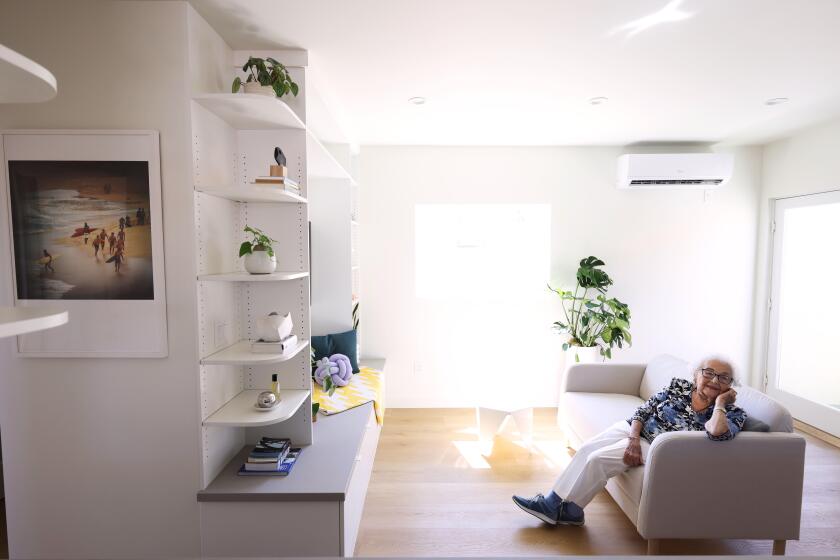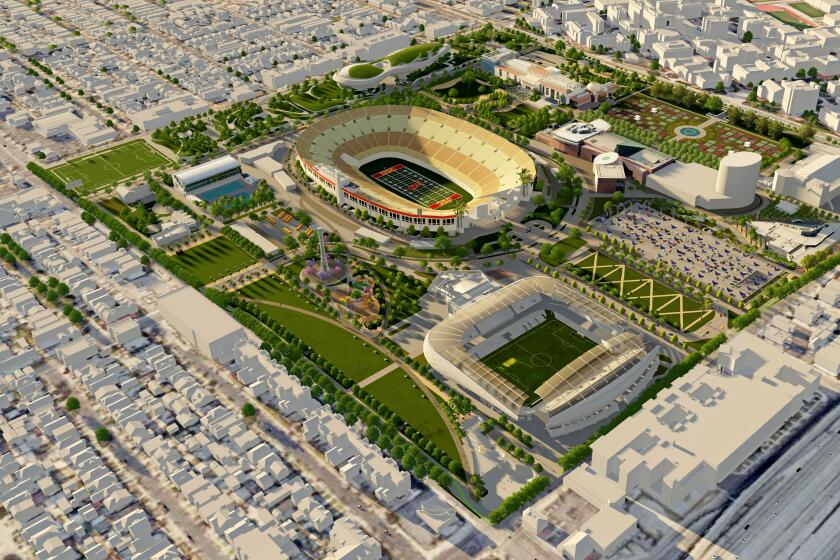Escena Palm Springs: SoCal’s first modern tract houses in decades
Architect Anthony Poon and developer Andrew Adler open a wire-bound inspiration notebook to a page with a series of images. The first shows an iPhone with the word “minimal” underneath. The second shows a streamlined sofa labeled “modern.” The third is a Prius with the notation “green.” The images are connected with plus symbols, so the series reads like a question:
iPhone + modern sofa + Prius = ?
For the solution to the equation, the two men rise from their chairs inside the clubhouse of this Palm Springs golf course, walk to Adler’s Porsche Panamera and drive around the corner to a construction site where crews enduring a February heat wave slog between partially framed tract houses in a barren landscape punctuated with stacks of gypsum board.
This is the question mark at the end of the math problem: iPhone + modern sofa + Prius = Escena.
Escena is believed to be the first single-family tract house development in Southern California built in a modern architectural style since the actual “Mad Men” era, when builders such as Joseph Eichler and the Alexander Construction Co. brought Midcentury Modern to the masses. The bet driving this development: that a new generation raised with smartphones, Ikea stores and hybrid cars understands that modern design is built into every object of their lives.
GALLERY: Larger photos of the Escena houses
When it comes to home, the prevailing, post-recession sensibility is simple but cool. It’s smart and efficient. It’s comfort without excess. Escena houses, Poon says, are designed for the modern person who thinks, “I don’t want to be the guy driving the Hummer.”
So here on the north side of Palm Springs, where Gene Autry Trail meets Vista Chino, you will see no faux Italian villas striving for “Under a Tuscan Sun” romantic rusticity. No Spanish tile, no Moroccan arches, no board-and-batten ranch-house siding with a Western accent. These houses speak in the architectural language of flat roofs, open floor plans and maximum connection to the outdoors. Imagine floor tile that emulates the look of polished concrete. Or sleek, high-gloss kitchen cabinets imported from Italy and unencumbered by hardware. Or biofuel fireplaces that deliver ambience without pollution.
“There is a lot of beautiful, modern design in mixed-use projects, condos and apartments, but not in single-family housing,” says Poon, principal at Poon Design, a Beverly Hills firm whose portfolio includes Chaya, Saffron and Mendocino Farms restaurants. Any developer can crank out “Taco Bell” houses and make money, the architect says, “but I think it’s time — time to start offering high design to a mainstream marketplace.”
For an industry burned by risk, building variations of existing tract housing may seem the safest course of action. But Adler’s company, Alta Verde Group, is betting that “Ikea has weaned America on modernism” and that modern has become mainstream.
“We think our audience is more sophisticated than our industry gives them credit for,” Adler says.
The four Escena house plans that Poon developed with John Kim, a partner in his firm, define “modern” not just with a sleek palette of finishes but also with how the three-bedroom floor plans use their space, which ranges from 2,200 to 2,600 square feet. Living rooms are large and lined with glass; in one model, 10.5-foot-tall Fleetwood sliding glass doors run the entire width of the house and practically bring the swimming pool to the sofa. Another floor plan has a main living-dining area that’s about 50 feet long, capped with a wall of glass overlooking the San Jacinto Mountains.
By comparison, master bedrooms are modest in scale, with much space devoted to closets. In some models, clever U-shaped bathrooms give two people their own vanities, each backed by additional closets — “could be his-and-his or hers-and-hers,” the construction supervisor points out during a more recent walk-through.
MORE PHOTOS: Second gallery of Escena houses
The homes are marketed with the tagline “This Century Modern” and have been equipped to back up the pitch, including a solar panel system that comes standard and an optional plug-in car charger for the garage.
Four months after that day when Poon and Adler laid out their iPhone and Prius equation on the clubhouse dining table, the math has gotten even more solid. Phase 1 of Escena, which consisted of nine houses starting in the high $400,000s, has sold out. The six houses of Phase 2 have sold or are in escrow, set to close before construction is to be completed in late August or early September. Phase 3 just started construction, and already five of the nine houses have sold, an Alta Verde representative said. The developer is preselling Phase 4, with prices set at $570,000 to $770,000.
The National Assn. of Home Builders could not offer data on the demand for modern houses or the extent to which modern design might be commanding a premium in pricing. But smaller-scale developments in greater L.A. certainly suggest that other developers sense opportunity too.
As we reported previously, architect Don Holtz and developer Todd Wexman recently held open houses to showcase four new houses in L.A.’s Glassell Park neighborhood — a mini tract built for the “Dwell generation,” Holtz says. The living rooms read “loft” thanks to windows stacked under a 21-foot-ceiling, and glass doors in the master bedroom slide into wall pockets, completely opening one corner of the room to the outdoors. The bottom level of each house has been reserved as a bonus room — a guest bedroom or maybe living quarters for a boomerang kid or a caregiver, or perhaps a home office with its own entrance from the outside
“Modern is malleable,” Holtz says, referring not only to flexible floor plans but also an aesthetic than can be more easily molded to home buyers wanting to express who they are and what they like through architecture and decor. “You are not hamstrung by notions of what is correct for the period,” he says.
Back at Escena, the 130 lots that Alta Verde owns are on track to be built out over the next two years, Adler says, with two more floor plans and four more variations on the streetside facades in the works.
The strong demand emphasizes the need for modern design to reach beyond custom homes and into middle-class housing, including communities beyond Palm Springs and urban L.A., Poon says. “Why wouldn’t this work in the 909 area code?”
This story is the first in a series on the evolving design of tract houses, in-fill developments and other homes aimed at the modern buyer. Send me your questions, concerns, frustrations and anecdotes on the subject, and your comments will help to shape future coverage.
Follow me on Twitter @cnakano. Email me at [email protected].
ALSO:
Duplex gives brothers togetherness -- and separation
Architect John Frane carves out some privacy in crowded L.A.
JOIN US:@latimeshome | pinterest.com/latimeshome | facebook.com/latimeshome | facebook.com/latimesgarden
More to Read
Sign up for Essential California
The most important California stories and recommendations in your inbox every morning.
You may occasionally receive promotional content from the Los Angeles Times.
